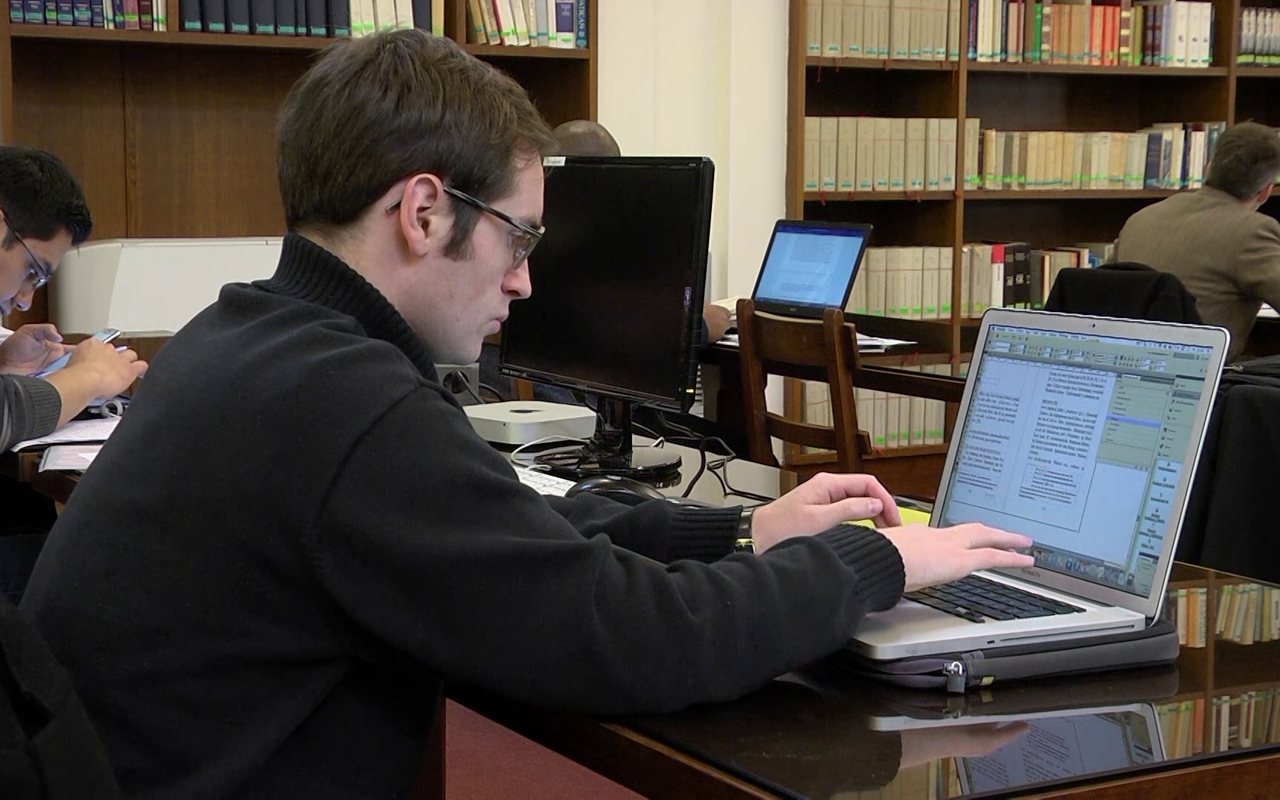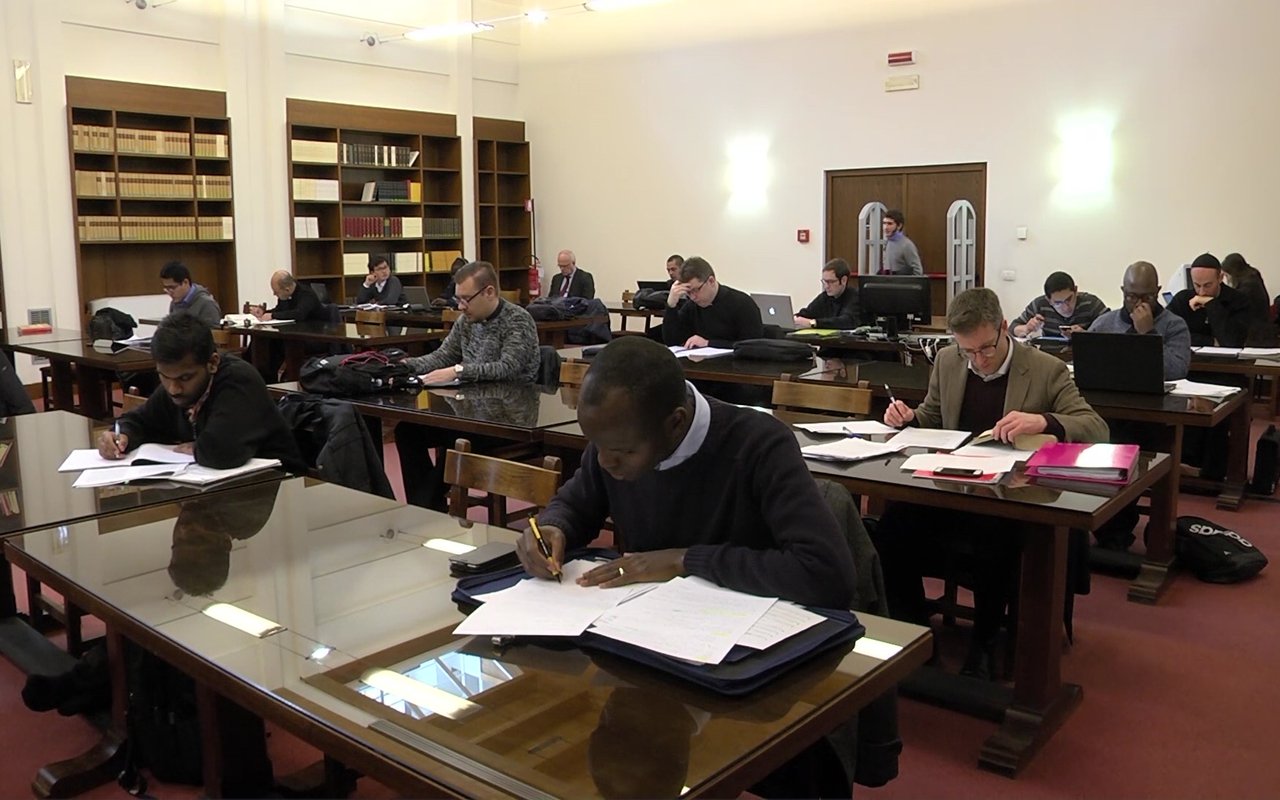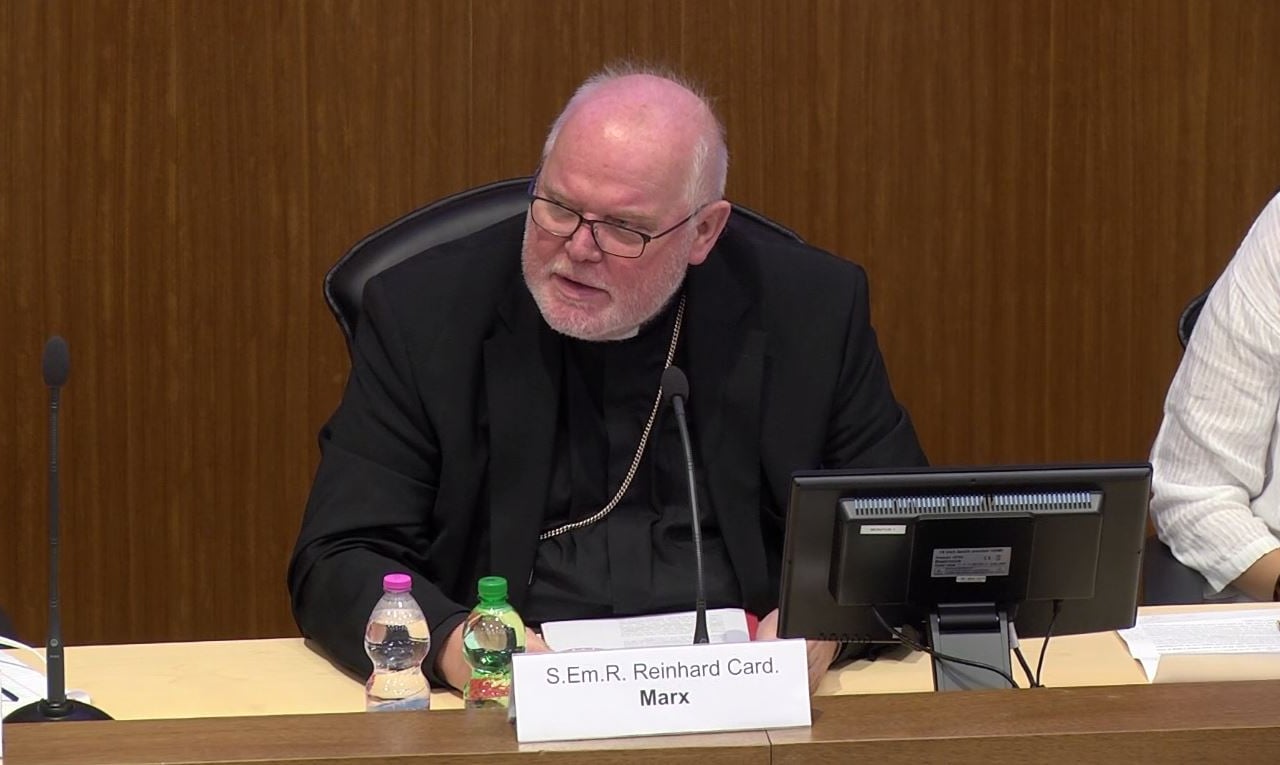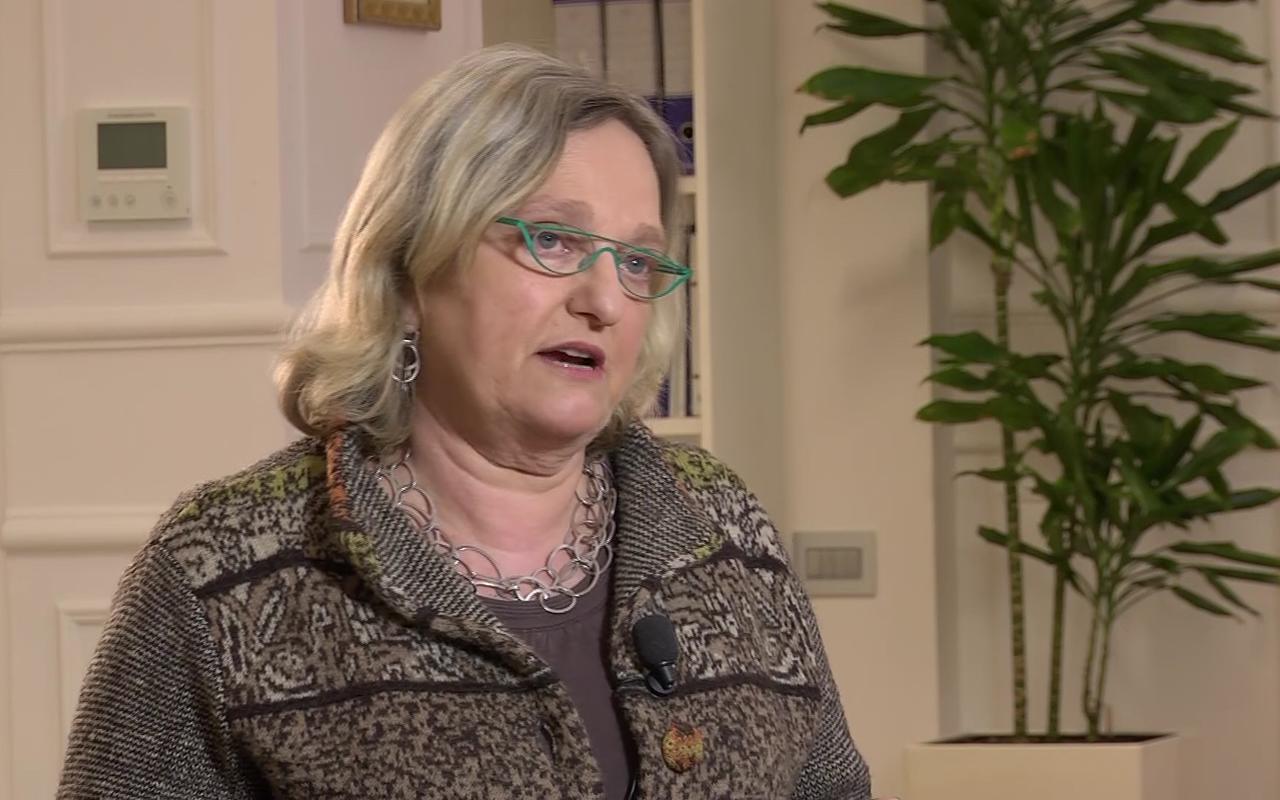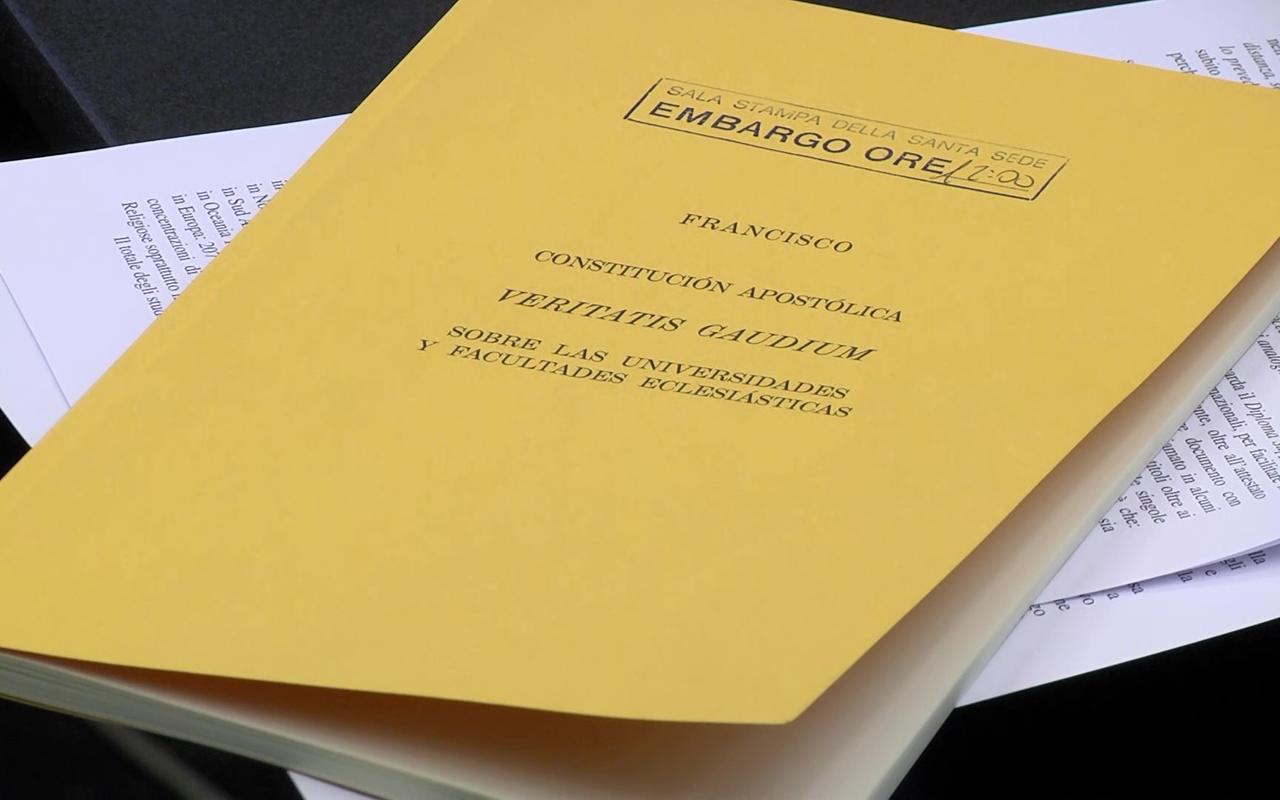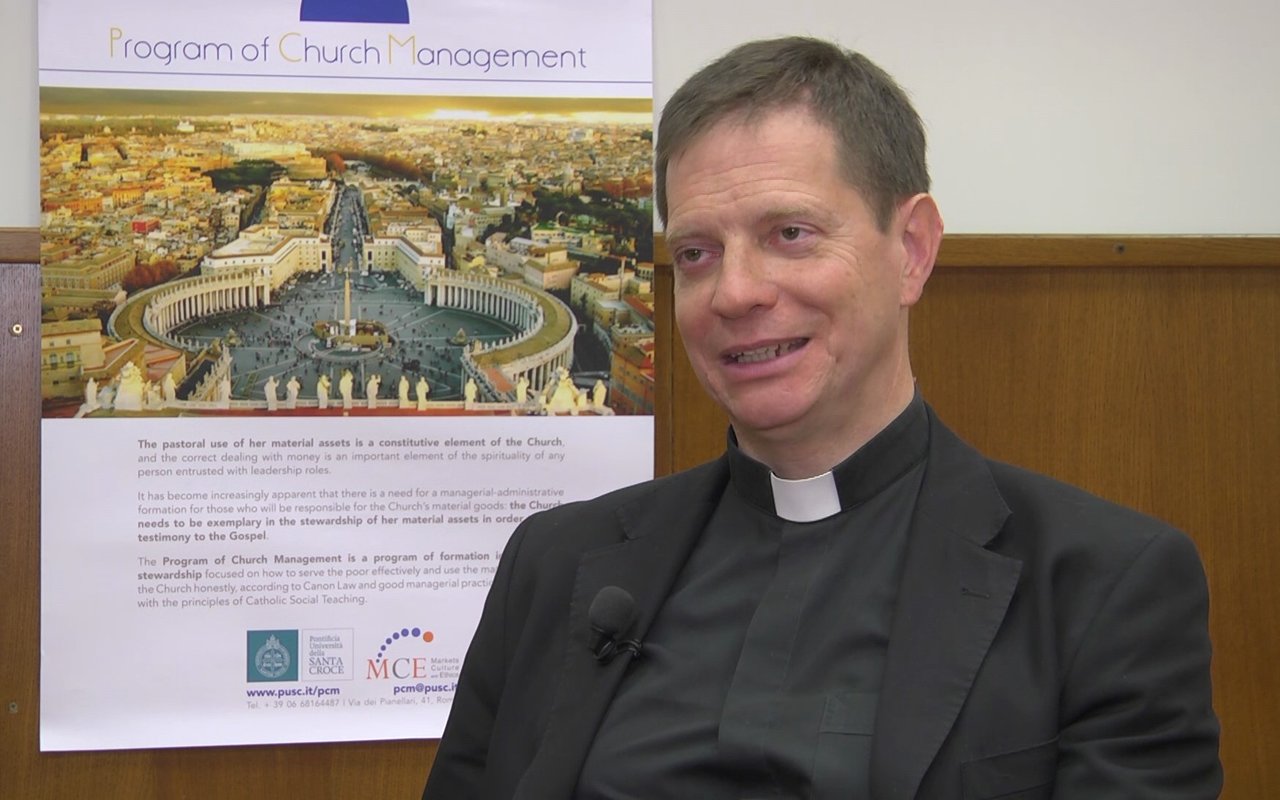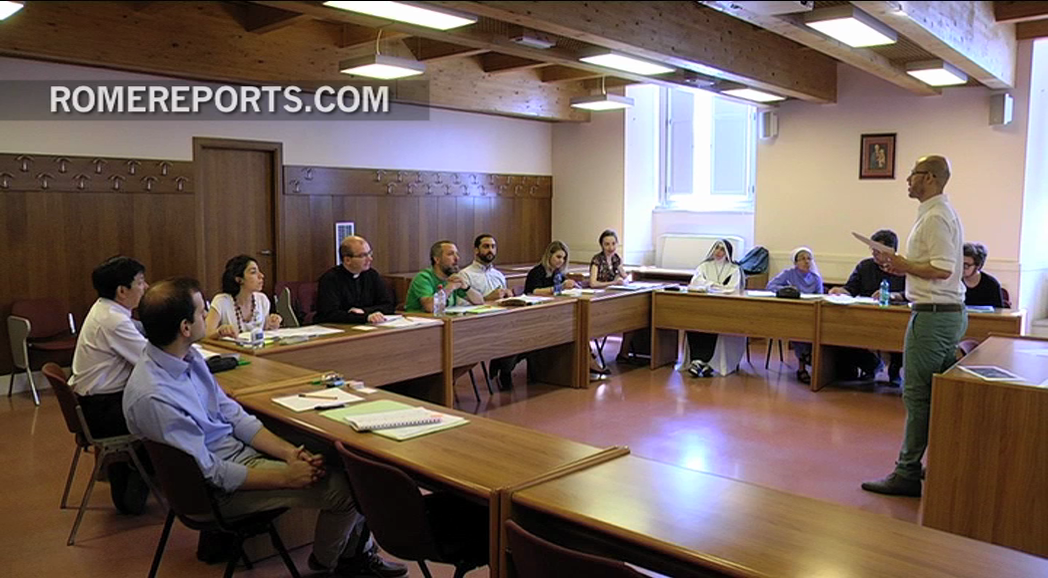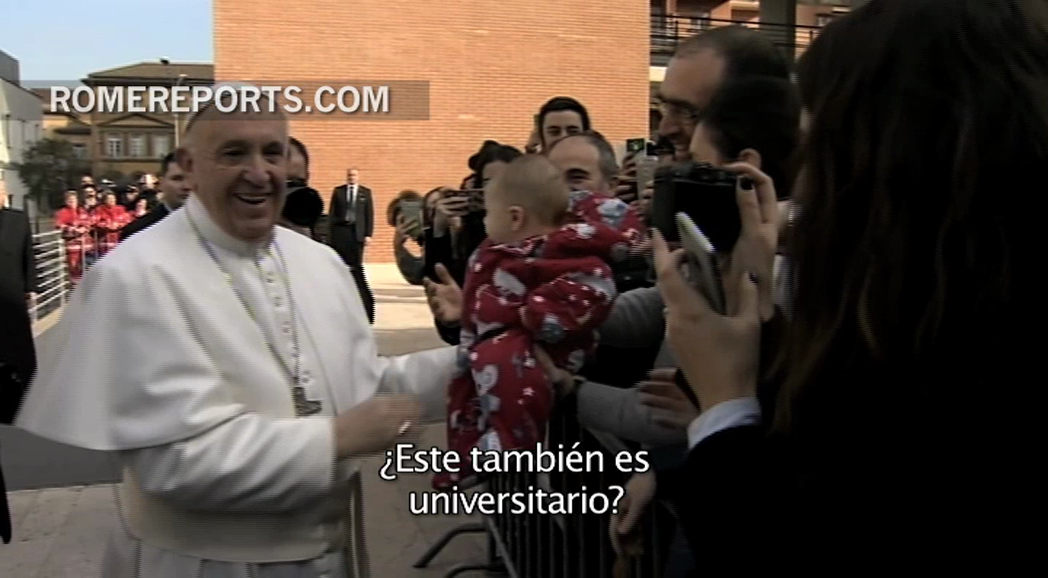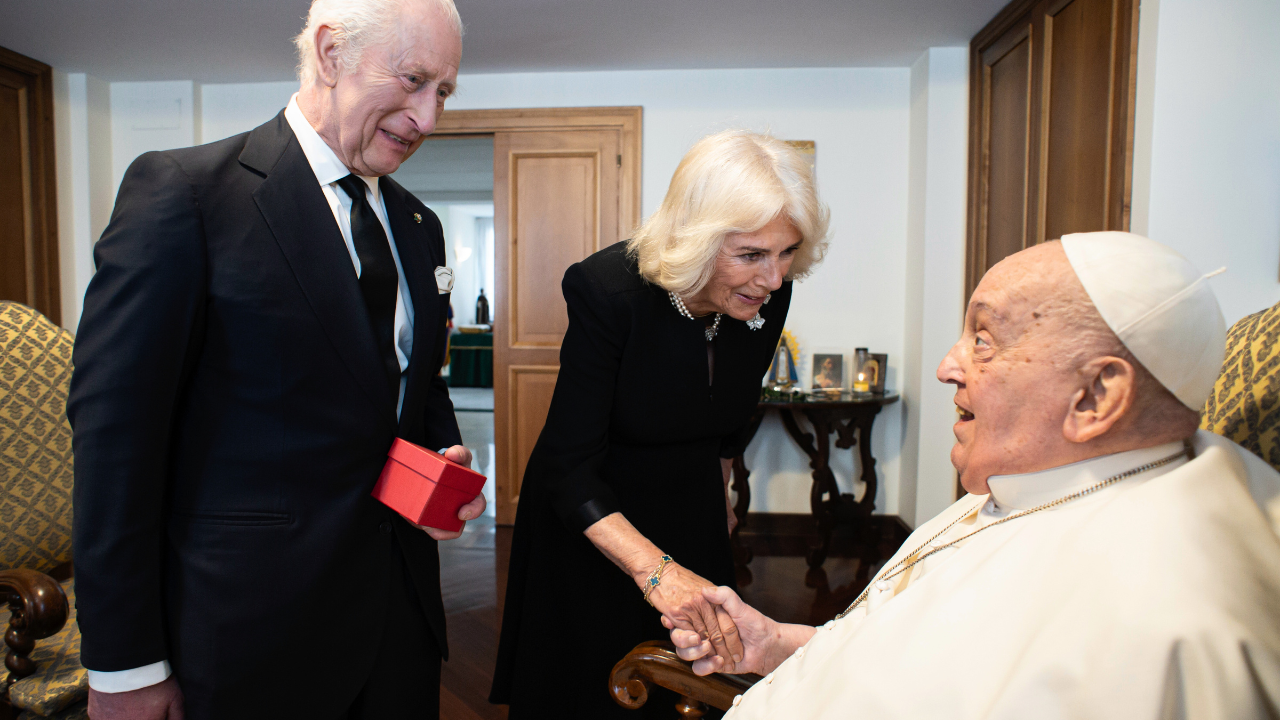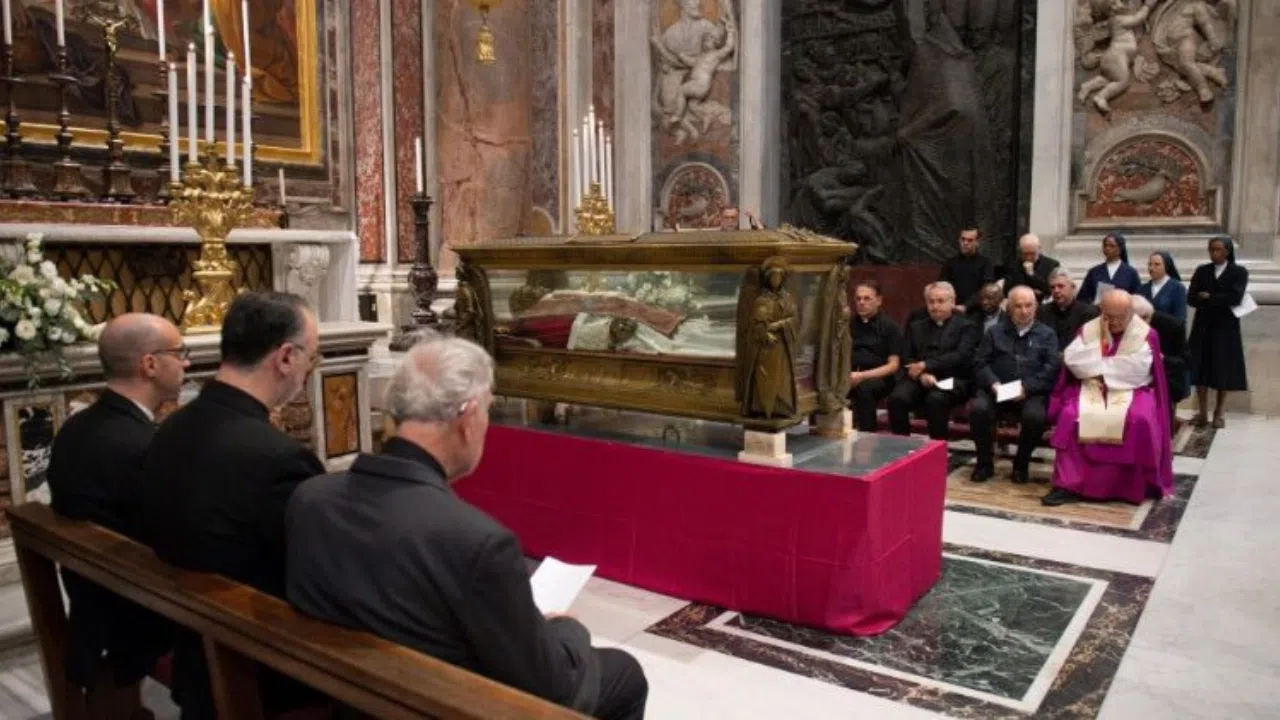'Hello, me name is Luis. I'm Spanish and I study Latin.â?
'Hello, my name is Sieste. I'm from Holland and I'm learning Greek.â?
These students from the Pontifical University of the Holy Cross in Rome study not just Latin and Ancient Greek but also Hebrew. They attend classes during the summer because they want to learn the three ancient languages. They are different ages and come from very different backgrounds, but they all share a common interest.
SIESTE VENEMA
Ancient Greek student
'I would like to learn the Greek language, I would like to speak it, because I think it is easier to read the ancient text when you can also speak it, and can use the language as a normal language.â?
LUIS RUSPOLI
Latin student
'It's interesting to see how the language that the Romans used would have sounded, how they would have spoken. I like that idea.â?
The only languages you'll hear in the classroom are Latin, Greek, or Hebrewâ??any other language is forbidden. For example, Lorenzo and Francesca are Italian, but they only use one language when addressing their professor: ancient Greek.
Some classic ancient texts have never been translated. This course aims to show that the classical languages are the best way to read and understand those texts.
CHRITOPHE RICO
Director Instituto Polis
'More than 50 percent of ancient sources haven't been translated into a modern language. The only way to read them is to speak the language and to be able to read fluently.â?
More than 100 students participate in this program over the course of three weeks. They want to prove that the so-called dead languages are coming to life more and more every day.
LOA/JPB
AA
-JM
Up:LOA
